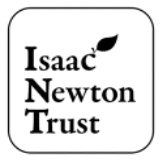| 30 Jan 2024 | 17:00 - 18:30 | Online | |
- Description
- About the inReach project
Description
Part of the inReach – /ɪn riːtʃ/ project
A conversation between Ananya Jahanara Kabir and Magna Gopal
Convenor
Kelly Fagan Robinson (Department of Social Anthropology)
Speakers
- Ananya Jahanara Kabir FBA (Professor of English Literature at King’s College London)
- Magna Gopal (Empowerment coach)
Abstract
Colonialism, enslavement, dispossession, and displacement: modernity’s foundational traumas also catalysed unexpected new cultural forms, including globally popular social dances that combine the European-derived partner-hold with African- derived rhythmic elements. Unequal and violent encounters generated dances based on the shared exhilaration of partnership, which now circulate transnationally through semi-formal leisure industries based on classes, parties, and festivals. Professor Ananya Jahanara Kabir’s research has mobilised this paradox to articulate a relationship between trauma, resistance, survival, and the market that she calls ‘alegropolitics’, or the politics of collective joy through connection—the title of the book she is currently completing, that draws on over ten years of multilingual, multi-sited, archival and field research on transnational spread of African-heritage partner dances such as salsa, tango, lindy hop, zouk, bachata, and kizomba.
Research on dance involves embodied and participatory methods. Simply put, it means dancing socially (a lot) and thinking about how the dance floor transforms us and what it can teach us. One of Ananya’s longstanding collaborators from the dance scenes she studies and participates in is the renowned salsa personality Magna Gopal. Their relationship exemplifies the deep connections between social dancers, teachers, and instructors that these scenes enable. Over the years Ananya and Magna have used their conversations to understand the inner logic of how partner dancing involves sociability, improvisation, musicality, and skill, to transform cultural appropriation to intersubjective connection. In this seminar they will conduct a conversation in the spirit of improvised partner dancing. They will talk about the ways in which reaching out to partners on the dance floor is also about reaching out across the barriers of class, ethnicity, religion, race, and profession to present live possibilities for connecting with each other through an alegropolitical legacy the dance carries with it as its own embodied history.
Event recording


About the inReach project
About inReach – /ɪn riːtʃ/
- inside the distance to which someone can stretch out their hand.
- within the capacity of someone to attain or achieve something
- (inversion of ‘outreach’) considers the expertise of those usually closed off from academic and artistic reception.
The term ‘inReach’ signifies any action which reshapes elite institutions as inclusive domains through centrally placing work by people otherwise absent in traditional arts and academic spaces. This series will critically question and therefore set to prove false the too-common trope that certain people are ‘hard to reach.’ By bringing artists, academics, and key local publics together via CRASSH, inReach will amplify the underacknowledged value of lived expertise of socially marginalised people, while also fostering ongoing debates about transience, stigma and inequality in the UK.

